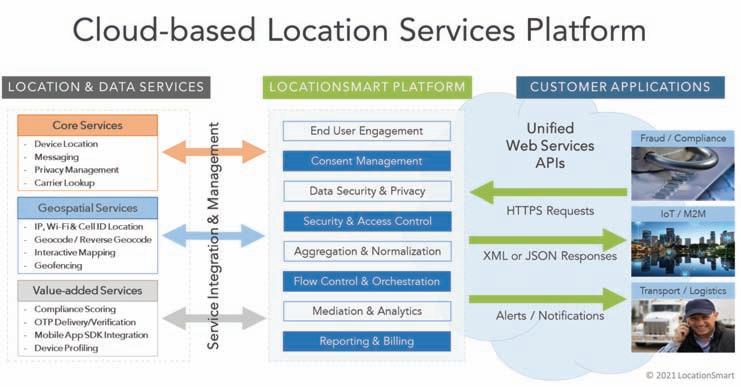
3 minute read
Emerging Leaders

Advertisement

—Mario Proietti, Founder and CEO, LocationSmart
on helping wireless carriers and public safety agencies locate mobile callers when they dial 911.
The company took another step forward in 2011.
“Ten years ago, we did the same for trucking and roadside assistance services, where we helped improve safety on our highways through innovative first-of-their-kind hands-free solutions,” he says.
The transformation to gaming emerged two years later.
“Online gaming came into the mix for us when states such as Nevada and New Jersey started allowing real-money wagering via the internet or mobile devices,” Proietti indicates. “This created an imminent need for location verification, which is a specialty of LocationSmart’s enterprise-grade services.
“Gaming is a different kind of safety,” he adds. “It may not involve physical well-being, but helping stakeholders in the gaming industry operate safely and free of financial and other exploitation is right in line with our philosophy.
“LocationSmart’s proprietary technology is well-suited for the gaming industry because it provides a multi-source solution to verify the integrity of a device’s location,” he asserts. “Our cloud-based technologies work for downloadable applications and also provide a compelling app-less solution for operators that prefer a more streamlined patron experience that doesn’t require them to install any special software.”
The company generally works with gaming platform builders or operators, Proietti says. Those tend to be companies that offer games themselves or operate them on behalf of a brand or other provider that could include state or national lotteries.
The actual technology applied for any given location verification depends on multiple factors including a device’s capabilities, its data connection, whether a browser or mobile app is being used and more.
Proietti credits the smartphone with jump-starting the online gaming industry.
“We’ve seen steady growth in the online gaming sector, but it is fair to say that many found the early adoption period lackluster,” he says. “This was likely due in part to the relatively small percentage of smartphone users in 2013. However, smartphone use nearly doubled by 2016 and mobile internet connectivity has quickly become ubiquitous.
“This has fundamentally changed the way people want to consume services,” he adds. “They’ve come to expect on-demand access to online services like mobile gaming. Covid-19 and related events of 2020 have certainly increased that demand and led to accelerated adoption by users and new jurisdictions. The trajectory was already set in motion, and I expect it will continue to follow a healthy growth trend for the foreseeable future.”
The industry is not without pitfalls. Three years ago, media outlets reported that the LocationSmart website allowed anyone to obtain the realtime location of any cellphone using any of the major U.S. wireless carriers (including AT&T, Verizon, T-Mobile, and Sprint), as well as some Canadian carriers, to within a few hundred yards, given only the phone number. Approximately 200 million customers may have been exposed, reports said. The data could be requested by anyone anonymously, with no authentication, authorization or payment required, according to published accounts.
“Yes, that was a challenging period for LocationSmart, but thankfully, a third-party forensic review confirmed that no end user or customer data was breached, nor were our operational systems,” Proietti says. “We discovered unusual activity coming from a demo page on our website within 24 hours and immediately eliminated the vulnerability. We have since evolved our platform to use new technologies and are focused on those for the future.”
Proietti says the company is focused on augmenting LocationSmart’s services with new location methods and increasing the multitude of inputs that it leverages for its customers.
“We are also working on introducing additional machine learning analytics to help enhance the robustness of our location verification solution while streamlining the end user experience even further,” he says.
The positioning tactics of GeoComply and LocationSmart are a blueprint for the geolocation sector: take advantage of current position and plan for the next boom.
Because it’s coming.









